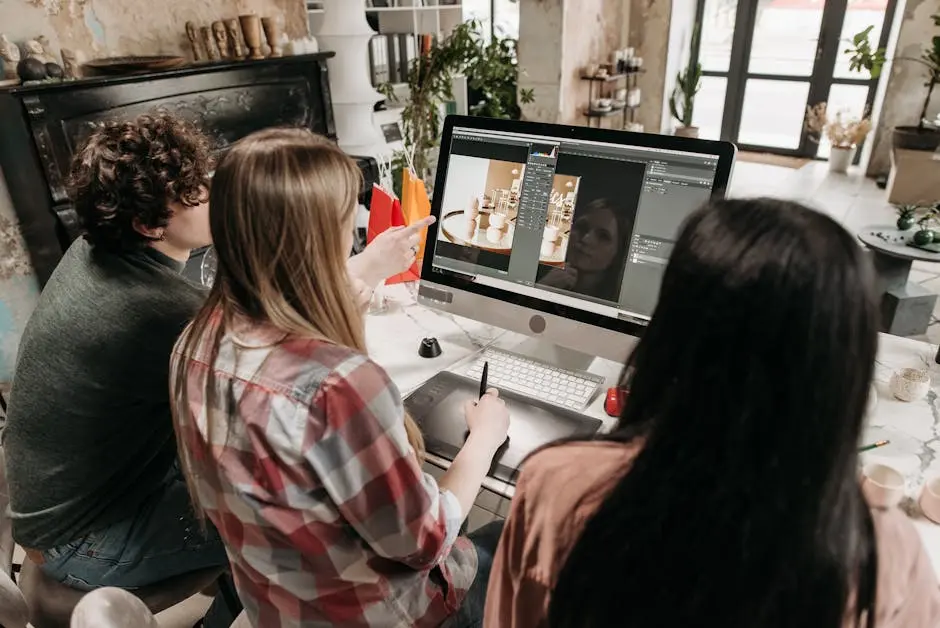How Can Forming an LLC Benefit a Freelance Designer?
.webp)
As a freelance designer, you may be wondering whether forming an LLC (Limited Liability Company) is the right choice for your business. This blog aims to break down the benefits of an LLC and why it might be a wise move for freelance designers looking to protect their assets and elevate their professional standing.
What is an LLC?
An LLC, or Limited Liability Company, is a business structure that combines the easygoing administrative qualities of a sole proprietorship with the protections of a corporation. This mix makes it particularly appealing for freelance designers who may not have prior business experience. Unlike other business structures, the LLC isn’t subject to as many rigid rules or taxing structures. This flexibility allows you as a designer to focus on the creative aspects of your business, rather than getting bogged down in complicated bureaucratic processes.
The essence of an LLC lies in its name itself: Limited Liability. Imagine it as a protective shield around your personal finances. Should any legal claims arise from your design work, your personal assets, like your home or savings, stay safeguarded. This separation can offer you peace of mind, knowing that your creative freedom won’t inadvertently put you at personal financial risk Should I Start an LLC As a Freelancer?.
Another hallmark of LLCs is their flexibility in how revenues are taxed. Freelancers can opt for pass-through taxation, where business income is reported on their personal tax returns. This option often results in lower overall taxes and bypasses corporate 'double taxation' Should I Form an LLC for My Freelancing Work?.
Limited Liability Protection
One of the main benefits of forming an LLC is the legal separation between your personal and business assets, reducing personal risk in case of lawsuits or debts.
The world of freelancing, especially in design, is full of challenges and unexpected liabilities. The flexible nature of freelance work means that projects and clients come and go, sometimes leading to disputes. By establishing an LLC, you shelter your personal assets from these professional risks. This separation ensures that potential legal issues stemming from your design work don't impact your personal finances, creating a financial safety net.
Even if disaster strikes—say, a client isn’t pleased with the final product, or there’s an unexpected breach of contract—the LLC stands as a separate entity in the eyes of the law. This means that any legal charges brought against your design business will target the LLC, not your personal bank account or property. It's an additional layer of security that can be a game-changer for anyone in the creative industry Should I Start an LLC As a Freelancer?.
Tax Flexibility
LLCs offer a variety of tax options including being taxed as a sole proprietorship, partnership, or corporation, allowing you to choose the best fit for your financial situation.
What stands out about LLCs is their remarkable flexibility in tax treatment. As a freelance designer, the ability to customize your tax scenario can lead to significant savings. Opting for pass-through taxation allows your LLC’s income to be taxed only once, on your individual income tax return, avoiding the double taxation that corporations face Should I Form an LLC for My Freelancing Work?.
Moreover, as your business grows, an LLC can be restructured for further tax benefits. For instance, choosing to be taxed as an S-Corp might result in tax savings by dividing income between salary and distribution, potentially lowering your taxable income. However, it’s important to work with a tax professional to understand which tax option aligns best with your business goals and earnings Should I Start an LLC As a Freelancer?.
Enhancing Professional Credibility
Forming an LLC can enhance your professional image, as it shows clients and partners that you are serious and committed to your freelance business.
In the creative industry, perception can be just as crucial as the final product. When clients see your freelance business operating as an LLC, it suggests stability and reliability. This setup often gives the impression that you are not just a solo operation, but a committed business entity. Such perceptions can open doors to larger projects and more substantial collaborations, further elevating your standing in the competitive design field.
Moreover, operating under an LLC might make clients more comfortable, knowing they are working with a properly structured and legally recognized business. This professional presence can be pivotal when attracting new clients or when negotiating higher rates for your services, pushing your design business to greater heights Should I Form an LLC for My Freelancing Work?.
Operational Simplicity and Flexibility
An LLC provides a flexible management structure that's simpler than running a corporation, giving you the freedom to operate your business in a way that suits your preferences.
The flexibility of an LLC doesn’t end with taxes and liability. It also extends to how you manage your design business on a day-to-day basis. As a freelance designer, you're often juggling various tasks from creativity to client management. The adaptable nature of an LLC means you can shift roles, bring in a partner, or even plan for future growth without changing your business structure significantly.
Unlike other forms, such as corporations, there are fewer requirements concerning meetings and bylaws, which translates into more time for what you love—designing. For designers juggling creativity with administration, this streamlined approach is ideal, allowing more focus on expanding portfolios and client lists Should I Start an LLC As a Freelancer?.
Summing Up: Why LLCs Matter for Freelancers
Forming an LLC can provide freelance designers with valuable benefits such as limited liability protection, tax flexibility, professional credibility, and operational autonomy. It's a strategic step that can help stabilize your business, safeguard your personal assets, and potentially lead to growth.


.png)





